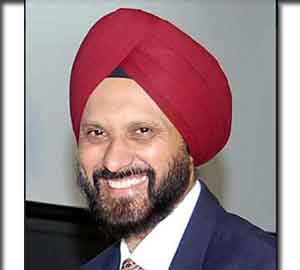- Home
- Editorial
- News
- Practice Guidelines
- Anesthesiology Guidelines
- Cancer Guidelines
- Cardiac Sciences Guidelines
- Critical Care Guidelines
- Dentistry Guidelines
- Dermatology Guidelines
- Diabetes and Endo Guidelines
- Diagnostics Guidelines
- ENT Guidelines
- Featured Practice Guidelines
- Gastroenterology Guidelines
- Geriatrics Guidelines
- Medicine Guidelines
- Nephrology Guidelines
- Neurosciences Guidelines
- Obs and Gynae Guidelines
- Ophthalmology Guidelines
- Orthopaedics Guidelines
- Paediatrics Guidelines
- Psychiatry Guidelines
- Pulmonology Guidelines
- Radiology Guidelines
- Surgery Guidelines
- Urology Guidelines
Compression therapy +Early endovenous ablation best for optimal management of venous ulcer

A just-published landmark trial on venous ulcers has potentially far-reaching implications in the therapy of this vexing and fairly common problem in India.
Venous disease is the most common cause of leg ulceration. Although compression therapy improves venous ulcer healing, it does not treat the underlying causes of venous hypertension. Treatment of superficial venous reflux has been shown to reduce the rate of ulcer recurrence, but the effect of early endovenous ablation of superficial venous reflux on ulcer healing remains unclear.
The Early Venous Reflux Ablation (EVRA) trial was a multicenter, parallel-group, randomized, controlled trial that was conducted to assess the effect of early ablation of refluxing veins on ulcer healing. The results were presented by Dr. Alun Davies – Principal Investigator – at the recent CX Symposium and published in the NEJM 24 Apr 2018.
The trial summary enrolled 450 patients with venous leg ulcers with superficial venous reflux. They were randomized to:
Group 1 – Early intervention group – Received Compression therapy + early endovenous ablation of superficial venous reflux within 2 weeks after randomization
Group 2 – Deferred intervention group - Received compression therapy alone.
The study was done in 20 centers in the UK.
Among the patients assigned to the early-intervention group, the aim was for superficial venous reflux to be ablated within 2 weeks after randomization. Among the patients in the deferred-intervention group, an ablation procedure was considered after the ulcer had healed or at least 6 months after randomization if the ulcer had not healed. After the ulcer was healed, patients were offered elastic compression stockings according to local institutional policy. In both treatment groups, delivery of wound care and frequency of clinical follow-up were guided by local models of care.
OUTCOME ASSESSMENTS
The primary outcome measure was the time to ulcer healing from the date of randomization through 12 months.
The secondary outcome measures were the rate of ulcer healing at 24 weeks, the rate of ulcer recurrence, the length of time free from ulcers (ulcer-free time) during the first year after randomization, and patient-reported health-related quality of life. Ulcer-free time was assessed only in patients who completed 1 year of follow-up. Clinical disease severity was assessed with the Venous Clinical Severity Score assessment tool (scores range from 0 to 30, with higher scores indicating more severe venous disease) at randomization and 6 weeks after randomization. A disease-specific quality-of-life assessment (the Aberdeen Varicose Vein Questionnaire; scores range from 0 to 100, with higher scores indicating worse health related to varicose veins) and two generic quality-of-life assessments (the EuroQol Group 5-Dimension 5-Level questionnaire [EQ-5D-5L; scores on the visual-analogue health scale range from 0 to 100 and scores on the descriptive health index range from 0 to 1, with higher scores indicating better quality of life] and the Medical Outcomes Study 36-Item Short-Form Health Survey [SF-36; scores range from 1 to 100, with higher scores indicating better quality of life]) were performed at randomization and at 6 weeks, 6 months, and 12 months after randomization .
RESULTS
Patient and clinical characteristics at baseline were similar in the two treatment groups. The time to ulcer healing was shorter in the early-intervention group than in the deferred-intervention group; more patients had healed ulcers with early intervention (hazard ratio for ulcer healing, 1.38; 95% confidence interval [CI], 1.13 to 1.68; P=0.001). The median time to ulcer healing was 56 days (95% CI, 49 to 66) in the early-intervention group and 82 days (95% CI, 69 to 92) in the deferred-intervention group. The rate of ulcer healing at 24 weeks was 85.6% in the early-intervention group and 76.3% in the deferred-intervention group.
CONCLUSIONS
This multicenter, pragmatic, randomized trial showed that early endovenous ablation of superficial venous reflux as an adjunct to compression therapy was associated with a significantly shorter time to healing of venous leg ulcers than compression therapy alone. Patients assigned to the early-intervention group also had longer ulcer-free time during the first year after randomization.
These results will have a wide implication in early referral of patients with venous ulcers for ablation of refluxing veins vs the current standard (in UK, USA, and India ) of only compression as the primary treatment
To Read the full study click on the following link :
http://www.nejm.org/doi/full/10.1056/NEJMoa1801214?query=TOC
Dr. Harinder Singh Bedi, the author is MCh, FIACS (Gold Medalist) and is Chairman, Cardio Vascular Endovascular & Thoracic Sciences, Ludhiana Mediways Hospital, Ferozpur Road. He was earlier at the Escorts Heart Institute, New Delhi and the St Vincent’s Hospital, Australia. Dr Bedi is also the Secretary of the Venous Association of India and the Patron & Founder President of the Association of the North Zone Cardio Thoracic & Vascular Surgeons. He is a member Editorial Board, Cardiology at Specialty Medical Dialogues.

Disclaimer: This site is primarily intended for healthcare professionals. Any content/information on this website does not replace the advice of medical and/or health professionals and should not be construed as medical/diagnostic advice/endorsement or prescription. Use of this site is subject to our terms of use, privacy policy, advertisement policy. © 2020 Minerva Medical Treatment Pvt Ltd